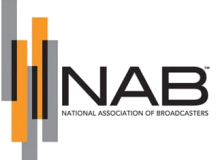Advertisement
|
NAB: Tech Platforms Threaten Future of Local Journalism
| RADIO ONLINE | Wednesday, September 2, 2020 | 12:33pm CT |





|
 |
The dominant marketplace power of a handful of digital technology platforms puts local broadcast radio and television stations at a competitive disadvantage for advertising revenue and impedes broadcasters' ability to effectively monetize their own content online, said NAB President/CEO Gordon Smith in a filing submitted to the House Judiciary Committee's Subcommittee on Antitrust, Commercial and Administrative Law. This overwhelming competitive position jeopardizes broadcasters' ability to invest in, produce and deliver local news and information, said Smith.
Broadcast radio and TV stations rely heavily on advertising revenue to invest in local journalism. Only a slight majority of TV stations report profitable local news operations, the NAB filing asserts, and many radio stations in markets of all sizes struggle to make local news programming financially viable. However, the struggle to offset newsgathering expenses has become significantly more difficult as broadcast stations face advertising competition from a few giant digital platforms, the size and scale of which easily dwarf the entire broadcasting industry.
"Radio and TV stations from across the country have recounted losing multitudes of local advertisers across all industry sectors, and large percentages of their ad dollars, to digital platforms, including Google, YouTube and Facebook," said Smith. "The massive shift in advertising to other platforms has profoundly affected local broadcasters. Stations in mid-sized and small markets with limited economic bases have been disproportionately impacted because any significant loss of revenue has an outsized effect on their ability to pay the largely fixed costs required to operate and to produce or acquire news and other programming."
The filing further argued that broadcast radio and TV stations must utilize digital platforms to effectively reach audiences, yet they have little leverage when dealing with the digital giants that control access to content.
"Given their usage by hundreds of millions of consumers, broadcasters must be available via all these platforms and devices to remain relevant to audiences and advertisers in the digital age," said Smith in the filing. "Local stations consequently lack bargaining power when dealing with the massive digital companies that essentially have become gatekeepers for content providers, including local TV and radio stations, needing to reach online audiences. These digital giants have clear incentives to keep consumers engaged with their own platforms, content and apps, and no effective incentives to adopt policies and practices that promote the providers of other content, including local news."
NAB contends that because of the tech platforms' dominant role as content gatekeepers, their unilateral decision-making - particularly when it comes to their ranking algorithms used to determine what content to provide users - can have an immediate and long-lasting impact on broadcast radio and TV stations' ability to deliver local news and information to community members.
"While the platforms constantly adjust and tweak them, those algorithms have consistently favored national sources over local sources; frequently favored controversial and polarizing content and opinion sources over high-quality journalism; and can often make it difficult for smaller, local publishers to reach audiences at all," said Smith in the filing. "The platforms' ranking changes - often made without consultation with broadcasters or other publishers - additionally can disrupt audience engagement with broadcasters' content, as well as stations' online revenue strategies."
The advertising policies of digital platforms also significantly impair broadcast stations' ability to fully monetize their content, Smith asserts in the filing. Setting a minimum content length that exceeds a typical broadcast segment, grouping local journalism into a general "news" category advertisers choose to avoid and excluding broadcasters from more lucrative advertising options are among the policies affecting local stations' access to digital advertising revenue. Additionally, local radio and TV stations have no ability to negotiate with online platforms regarding the revenue split for monetized content, and are instead forced to accept less favorable terms offered by the platforms.
"These platforms' technologies and unilaterally-set policies hurt local providers of quality journalism and prevent stations from effectively monetizing their own content online," said Smith. "Receiving cents on the dollar does not enable TV and radio stations to recover the considerable costs of producing local content in the first place."
In NAB's comments, Smith expressed support for remedies such as the Journalism Competition and Preservation Act, which was introduced by House Judiciary Antitrust Subcommittee Chairman David Cicilline (D-RI) and Rep. Doug Collins (R-GA). The bill would allow broadcasters and other news publishers to collectively negotiate with dominant digital platforms regarding the terms on which their content may be distributed online. A companion bill was introduced in the Senate by Sens. John Kennedy (R-LA) and Amy Klobuchar (D-MN).
Advertisement
|
Latest Radio Stories
2026 NAB Crystal Radio Award Winners Announced
|
Nielsen DMA Data Added to Magellan AI
|
CRS Honors to Reveal Hall of Fame, ACM Radio Winners
|
Advertisement
|
BEPN, Amber Grimes Launch ''If You Knew Better''
|
NAB State Leadership Conference Draws 570 Broadcasters
|
Entravision Acquires Playback Rewards' Technology
|

















